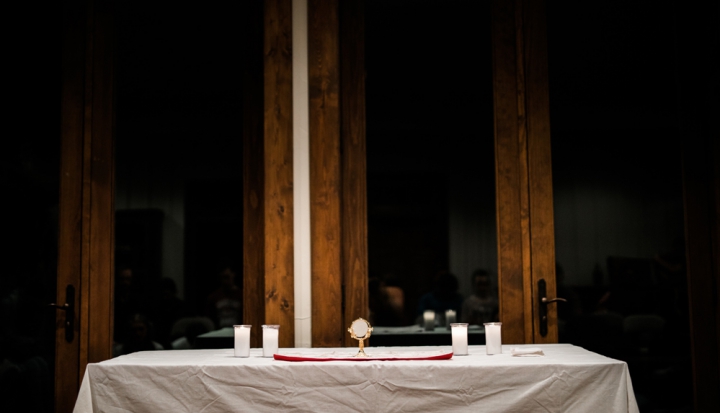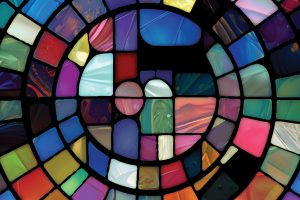One summer afternoon, driving past a cemetery, I saw six bikers talking, laughing, and drinking beer, their motorcycles parked nearby. My initial indignation was transformed upon noticing a solitary beer can on a headstone. The bikers had not simply pulled off the road for a quick drink on a hot day but were reconnecting with a now-deceased friend.
The communion they shared that day, though different from when their friend was alive, was substantive. The beer can on the tombstone rendered this event not just a sign of remembrance of their friend but also represented a moment in which the dead and living drank together. In this way, it had much in common with the sacraments we celebrate at church.
Sacraments are a sign of God’s grace and forgiveness through Christ. Much more, sacraments are events inviting us to truly experience that grace. During the Reformation, Lutherans and Roman Catholics agreed on what a sacrament is but disagreed about exactly which sacraments conveyed the promise of Christ. Martin Luther, for example, believed this was explicit only in baptism and the Eucharist.
Catholics, in formally declaring seven sacraments, turned to earlier theological authorities such as St. Augustine, who described sacraments as “the Word made visible.” Besides what we consider sacraments today, he also considered things such as Easter, preaching, the baptismal font, and ashes to be sacraments—tangible experiences of God’s salvation.
Likewise, St. Leo the Great believed that sacraments were effective signs of God’s redeeming work as especially seen in Christ. Like Augustine, he understood sacraments as God’s drawing humanity into a salvific communion through things humans might understand. Especially for Leo, sacraments rested on how salvation was seen and experienced through Christ and then through the multiplicity of sacraments perpetuating Christ’s presence.
More recently, Edward Schillebeeckx proposed how sacraments unify heaven and earth. Since Jesus is God, he enabled people on earth to experience God and heaven through his very being, especially through his words and deeds. Since the church is the body of Christ, it enables people on earth to experience God and heaven, especially through its preaching and sacraments. By being like Christ, the church thus offers us an experience here and now of heavenly unity with God.
Augustine, Leo, and Schillebeeckx might have considered the beer can on the tombstone a sacrament because it facilitated in a new way the group’s camaraderie by rendering their dead friend present among them. Moreover, it came directly from their past acts and experiences of fellowship. Likewise, the seven sacraments offer Catholics grace-filled occasions by which we might remember and experience our resurrected friend, Jesus, in our midst. They are established not necessarily by explicit divine command, but by the very way in which Jesus Christ—God with us—was with us, continues to be with us, and will be with us in heaven.
This article also appears in the October 2018 issue of U.S. Catholic (Vol. 83, No. 10, page 49).
Image: Grant Whitty on Unsplash














Add comment